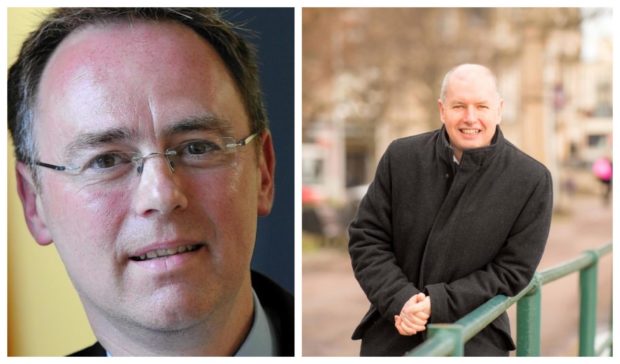Islands communities are debating the future of Gaelic at a series of meetings following a “reality check” book that claimed it could collapse as a spoken language within a decade in its main stronghold.
The Gaelic Crisis in the Vernacular Community was published in July by researchers from the University of the Highlands and Islands Language Sciences Institute and Soillse, a multi-institutional research collaboration.
The book, which examined the use of the language in the Western Isles, Skye and Tiree, said that if trends continue within the next ten years, most of the communities will be at, or have already entered, the “moribund” phase.
Falling numbers of speakers, lack of everyday use of the language among family and friends and indifference among young people are all helping the decline, the research said.
Western Isles MSP Alasdair Allan, a former Gaelic minister, has been working with Soillse and a cross-party group of MSPs on the issue. The first of seven meetings he has arranged in the islands was held last night and others have been organised in Skye and Tiree.
Among the topics being discussed will be the book’s recommendation to set up a community cooperative, Urras na Gàidhlig (the Gaelic Community Trust) to run family support schemes and youth groups to establish social networks of Gaelic speakers.
Mr Allan said: “These meetings will be a really useful open forum for discussion to determine appropriate actions in addressing this situation.
“I expect there was discussion on some really important issues, such as how people view the future of the language, what challenges and barriers people face using Gaelic in the home and community, and whether additional structures and supports are needed to promote the language in the islands.”
One of the book’s authors, Professor Conchúr Ó Giollagáin, professor of Gaelic research at the University of the Highlands and Islands, welcomed the community meetings.
He said: “This is a vital aspect of reassessing Gaelic policy for the Gaelic communities in the islands. The consultations should give community members an opportunity to express their views on the language situation as it has been depicted in The Gaelic Crisis.
“The meetings also give the community an opportunity to express their opinions on the book’s strategic recommendations to address the threat now facing the remaining Gaelic communities in the islands.”
He added: “It will be interesting to hear if the communities agree that existing Gaelic policies are felt to be of weak relevance to the concerns of the Gaelic communities in the islands. Our analysis contends that the voice of the Gaelic community has been the missing element in the official approach to Gaelic affairs.
“The Gaelic Crisis is an academic study of a language group in decline but it also serves as a reality check for official bodies to address the current unsustainable situation. Promoting officially-backed Gaelic sectors and emphasising the symbolic appeal of Gaelic identity as a constituent element of civic diversity will inevitably ring hollow if Gaelic policy cannot sustain actual Gaelic communities’.
A spokeswoman for Bòrd na Gàidhlig, which promotes the development of Gaelic, said: “The National Gaelic Language Plan has as its main aim that Gaelic is more often, by more people, in more situations. The Plan also talks about three types of communities – those in island and rural areas; those in towns and cities; and communities linked by technology. It is important that the needs of the different communities are understood and that support is tailored to fit those needs.
“We welcome these discussions as a contribution to increasing understanding of the vernacular community and look forward to attending.”
